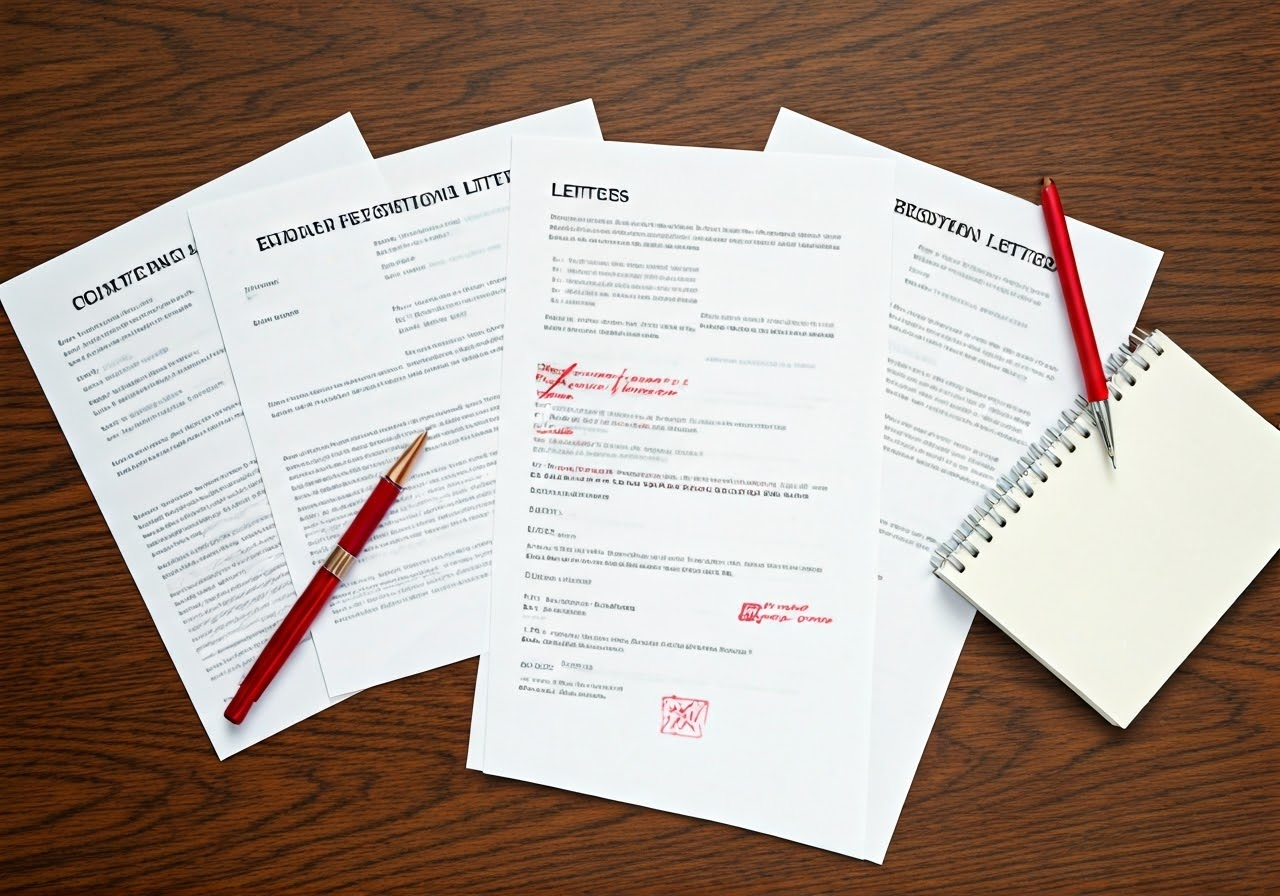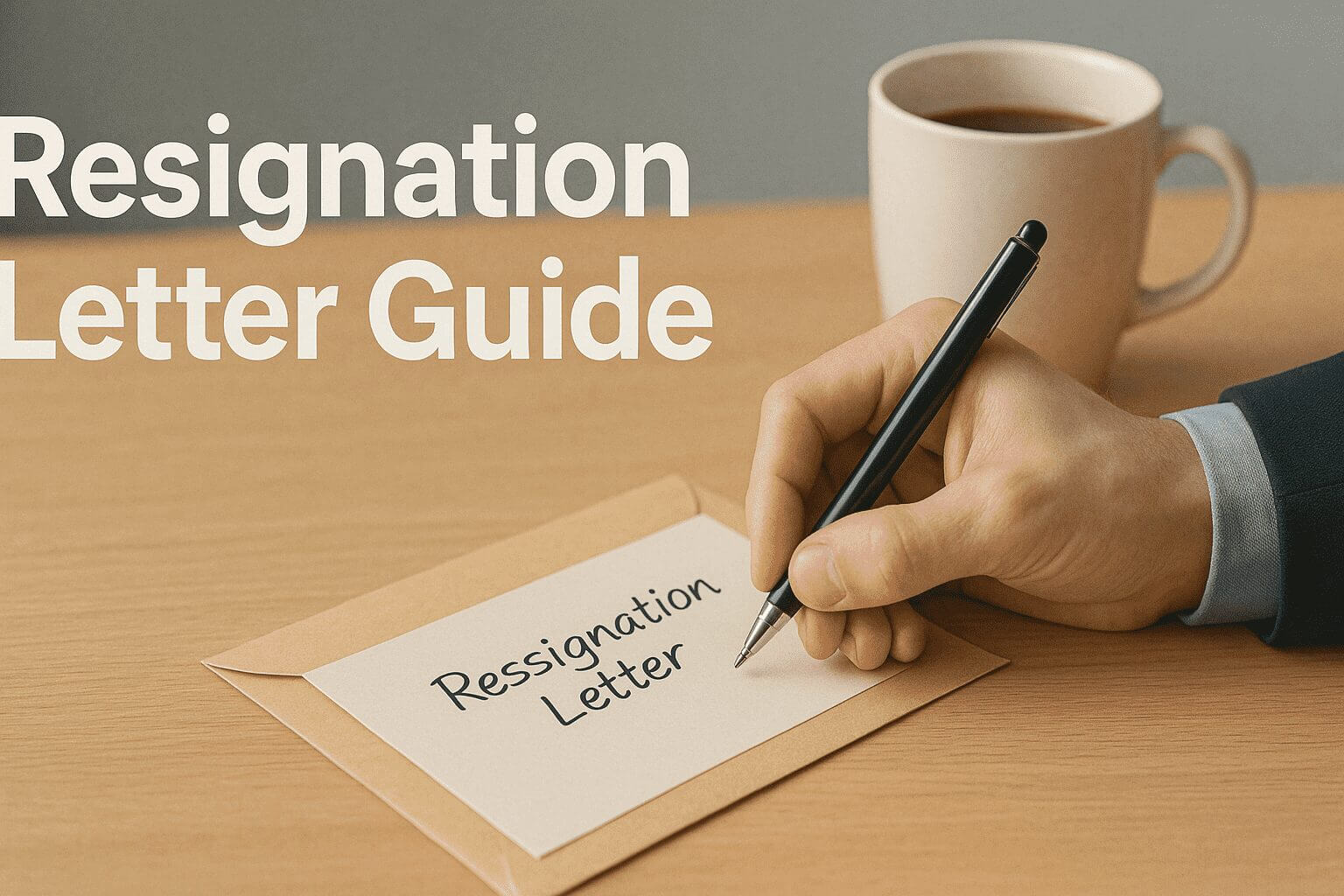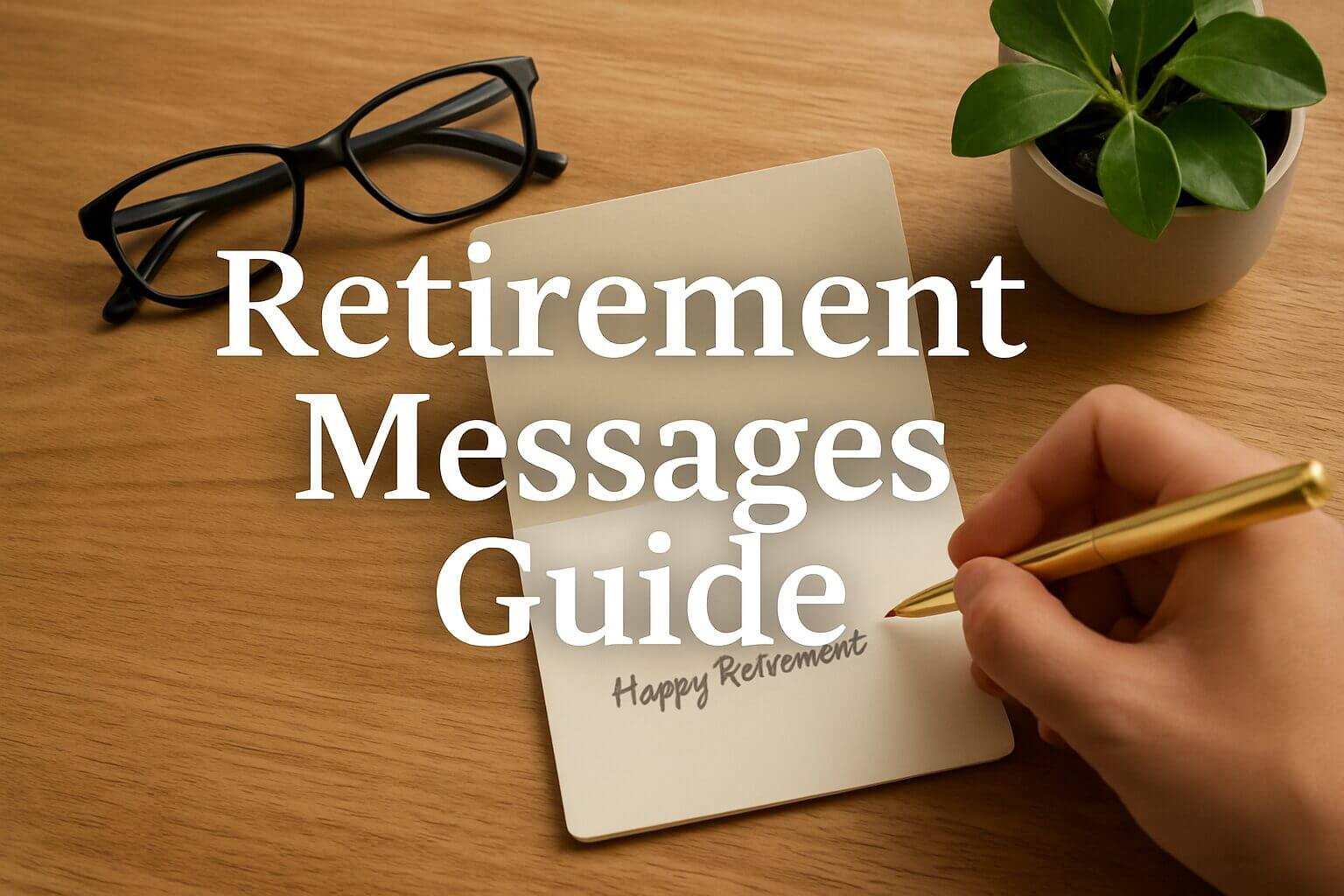
Key Highlights
- Writing a resignation letter is an important part of staying professional when changing jobs.
- A clear resignation letter helps make the process easier and keeps your workplace relationships healthy.
- Be sure to include your decision to leave, your last workday, and a genuine thank you.
- Stay away from mistakes like being too emotional or sharing too much personal information.
- Use sample templates to help you create a strong resignation letter for different situations.
- Finishing on a positive note can help future job chances and leave a good impression.
Introduction
Crafting a resignation letter is an important step in your career. This formal document notifies your boss that you are leaving. It also helps keep a positive relationship with your soon-to-be former employer. A well-written resignation letter can impact your career goals and future opportunities. By taking time for careful consideration and using the right words, you can have a smooth transition. This way, you can leave on good terms and create a path for your professional development in the future.
Understanding the Purpose of a Resignation Letter
 Writing a resignation letter is an important step in leaving your job. It clearly tells your employer that you are resigning and shows that you are professional. This letter not only lets the HR department and managers know your last day of work but also helps to highlight the positives during your time there. A clear statement of resignation helps everyone involved by ensuring a smooth transition process. This can help you keep a good relationship with the company and can lead to future opportunities in your career.
Writing a resignation letter is an important step in leaving your job. It clearly tells your employer that you are resigning and shows that you are professional. This letter not only lets the HR department and managers know your last day of work but also helps to highlight the positives during your time there. A clear statement of resignation helps everyone involved by ensuring a smooth transition process. This can help you keep a good relationship with the company and can lead to future opportunities in your career.
Importance of a Proper Resignation
A well-written resignation letter is a formal way to let your employer know you are leaving. It can help you keep a good relationship with them. Being professional during this time shows your character and can help you with future opportunities. If you think carefully about your exit, it can make the transition process smoother and reduce any trouble for the company. By acknowledging your time with them and showing gratitude, you can leave a positive impression. This goodwill may help you later, especially if you need references or advice in your new role.
Impact on Future Career Opportunities
A good resignation letter can greatly impact your job chances in the future. When you use a professional tone and show gratitude, you create a positive impression. This can help when references are checked. Managers often talk about how former employees left, and a thoughtful goodbye can build a positive relationship. This connection may help you network later on. Also, formally letting your employer know about your resignation shows your dedication to professionalism. This demonstrates valuable skills that future employers may notice, helping you with your professional development.
Essential Components of an Effective Resignation Letter
An effective resignation letter is important. It formally tells your boss that you are resigning. Start with a polite greeting that includes your manager’s name. Next, clearly say that you are resigning and mention your last day of work while making sure you respect the notice period. In the main part of the letter, give a brief explanation of why you are leaving. Thank them for the experiences you gained, and offer to help during the transition. Finally, end with a professional closing and include your contact information. This helps keep a positive relationship.
How to Start Your Letter
A resignation letter should start with a professional tone. This tone helps to create a smooth transition. First, address the right person, usually your manager’s name. Then, include a clear statement of resignation. Next, mention your last day of work, making sure it fits with your notice period. In the opening lines, be sure to show gratitude for your time there. This builds a positive relationship and leaves a good impression that could help with future opportunities.
What to Include in the Body of the Letter
Start your letter with a clear statement of resignation. Make sure to say your intention to resign and your last day of work. Then, include a brief explanation of why you are leaving, whether it’s personal or about your career goals. It’s very important to show gratitude for the opportunities you’ve had. This helps keep a positive relationship. You can also offer to help with the transition. This shows your professionalism and your commitment to a smooth transition process.
Concluding Your Letter Gracefully
Closing your resignation letter on a good note is very important. It helps keep strong professional relationships. Say thank you for the experiences you had during your time at the job. Acknowledge support from your colleagues and managers. Using kind words like “thank you” or “I appreciate” builds goodwill. Make sure your last lines show professionalism. Use phrases like “best regards” or “sincerely.” Offering help during the transition process can also make a positive impression. This can help you have good chances in the future.
What to include in a resignation letter
A good resignation letter should include some important parts to stay professional. Start with a formal greeting using your manager’s name. Clearly say that you are resigning and mention your last day of work. Give a brief explanation for why you are leaving. Remember to show gratitude for the chances you had at work. Offer to help with the transition process if needed. End the letter with your contact information. This keeps communication clear and helps maintain a positive relationship for any future opportunities.
1. A salutation
Starting your resignation letter well sets a serious tone. Address the letter to your manager’s name or the HR department if that fits better. This shows you respect them. Use a formal greeting like “Dear [Manager’s Name],” to strengthen the good relationship you’ve built. A careful salutation helps make a smooth transition and shows your professionalism. Keep in mind, this formal document is part of your growth in your career. It leaves a strong impression.
2. Your intention and departure date
It is important to clearly state your choice to resign in a professional resignation letter. You should write down your decision to leave the company and your last day of work. Keep it short and mention your notice period if needed. This helps with a smooth transition process. Being clear shows your professionalism. It also helps your employer prepare for your absence, keeping the positive relationship you built during your time there. Adding these details will create a good impression.
3. Your reason(s) for leaving
Giving a short explanation for why you are leaving can make your formal resignation letter stronger. When you explain your reasons, it’s important to stay professional and not say anything negative. You might mention personal reasons, career goals, or new role opportunities. Being clear is really important. Always aim for a positive tone so you leave a good impression on your manager and the HR department. This kind of balanced approach helps you leave on good terms and keeps useful connections for future opportunities.
4. A thank you
Including a genuine thank you in your resignation letter is important. It helps keep a good connection with your employer. When you recognize the support and chances you received during your time there, it shows that you are professional. This makes a great, lasting impression. A simple act like this can lead to goodwill. It makes sure that others see your exit positively. Moreover, a sincere thank you may open doors for future opportunities. Staying connected can help with networking and building professional ties, even after your last day of work.
5. An offer to assist in the transition
Including an offer to help during the transition can improve the professionalism of your resignation letter. This small act shows your gratitude and respect for your team and the company. You could offer to train a co-worker or finish any important projects before your final day. By letting them know you are happy to help, you build better relationships and leave a good impression. Ultimately, this offer can help create a smooth transition that is good for you and your employer in the future.
6. Your contact information
Including your contact information is very important for a smooth transition and for keeping a good relationship. This part should have your email address and phone number. This way, the HR department and your manager can reach you after your last day at work. Making this information clear and easy to find shows professionalism. It can also help you connect again in the future. A simple way to present this boosts the formal tone of the resignation letter and improves your accessibility during the transition process.
Resignation letter Templates
Using different resignation letter templates can make it easier to write your formal document. These templates help you follow a clear format. This way, you can make sure to include important details like your intent to leave, your last working day, and a thank-you note. Using a template helps you keep a professional tone. It also helps you keep a positive relationship with your employer. With the right words, you can share your message clearly while causing less trouble. A good resignation letter helps create a smooth transition, which can lead to future opportunities.
Template 1:
[Your Name]
[Your Address]
[City, State, Zip Code]
[Email Address]
[Date]
[Manager’s Name]
[Company Name]
[Company Address]
[City, State, Zip Code]
Dear [Manager’s Name],
I am writing to let you know that I am resigning from my job as [Job Title]. My last day of work will be [Last Day of Work]. I made this choice after careful consideration of my career goals. I want to thank you for all the support during my time here. I am grateful for the chances to grow professionally. Please tell me how I can help with the transition process.
Best regards,
[Your Name]
Template 2:
[Your Name]
[Your Address]
[City, State, Zip Code]
[Email Address]
[Date]
[Manager’s Name]
[Company Name]
[Company Address]
Dear [Manager’s Name],
I am writing to formally let you know that I am resigning from my job as [Your Job Title], effective [Last Day of Work]. I made this choice after carefully thinking about my career goals and personal reasons. I want to thank you for the chances I’ve had for professional development while working here. I will work hard to make sure there is a smooth transition.
Thank you for your understanding.
Best regards,
[Your Name]
Template 3:
[Your Name]
[Your Address]
[City, State, Zip Code]
[Email Address]
[Date]
[Manager’s Name]
[Company Name]
[Company Address]
[City, State, Zip Code]
Dear [Manager’s Name],
I am writing to let you know that I will be resigning from my job as [Job Title]. My last day of work will be [Last Day of Work]. I made this choice after careful consideration of my career goals and personal reasons. I appreciate the time I have spent at the company and will work to ensure a smooth transition.
Best regards,
[Your Name]
Common Mistakes to Avoid in Resignation Letters
 Crafting a resignation letter is important. You need to be careful to avoid common mistakes. It is best not to include too much emotion, as this can affect your professionalism. Keeping a calm and respectful tone is very important. Sharing too many personal reasons can cause problems and should be avoided. Instead, focus on your career goals and professional development, as this can help you leave on good terms. A well-written formal document can ensure a smooth transition. This will leave a positive impression with your employer and can help you in future opportunities.
Crafting a resignation letter is important. You need to be careful to avoid common mistakes. It is best not to include too much emotion, as this can affect your professionalism. Keeping a calm and respectful tone is very important. Sharing too many personal reasons can cause problems and should be avoided. Instead, focus on your career goals and professional development, as this can help you leave on good terms. A well-written formal document can ensure a smooth transition. This will leave a positive impression with your employer and can help you in future opportunities.
Overly Emotional Content
Keeping a professional tone in a resignation letter is very important. This helps stop strong emotions from affecting your main message. Sharing feelings like frustration or disappointment might make it hard to say goodbye respectfully. This can also hurt your future opportunities. Instead, focus on showing gratitude for what you learned and the skills you gained during your tenure. By doing this, your letter can show closure and professionalism. It builds good relationships and helps you leave on a positive note, which can be good for your career path.
Disclosing Too Much Information
Keeping your resignation letter discreet is important for professionalism. You should give a brief explanation of why you are leaving, but it’s best not to share too much personal info or any negative comments. This can hurt your work reputation. Instead, focus on the good experiences and skills you learned during your time at the job. By making sure your letter is a formal document, you build a positive relationship with your employer. This helps keep the door open for future opportunities and ensures a smooth transition as you leave.
Sample Resignation Letters for Various Scenarios
Crafting resignation letters that fit different situations can help make your message clear and keep things professional. For example, if you are resigning for a new job, your letter should thank your current role while pointing out your career goals. If you need to resign immediately, just give a brief explanation without going into personal reasons. Every letter should keep a positive tone. This way, you can ensure smooth transitions and leave a good impression on your managers and colleagues.
Resigning for a New Job Opportunity
Expressing gratitude is important when you resign for a new job. A professional resignation letter should clearly say you are leaving. It should include the company name and your last day of work. It’s good to mention personal growth or how the new role fits your career goals. This adds a nice touch to the message. Focusing on keeping a professional relationship will make a good impression. It helps to ensure a smooth transition process and can lead to future opportunities.
Resignation with Immediate Effect
Leaving a job right away means you need a well-written resignation letter. This letter should clearly and professionally express your decision. Start by stating that you are resigning immediately due to unforeseen circumstances. Remember to show gratitude for what you learned and the relationships you built during your time there. A shorter notice period might cause some inconvenience, but you can help by offering to assist during the transition process. This professionalism helps you leave on a positive note, keeping future opportunities open.





